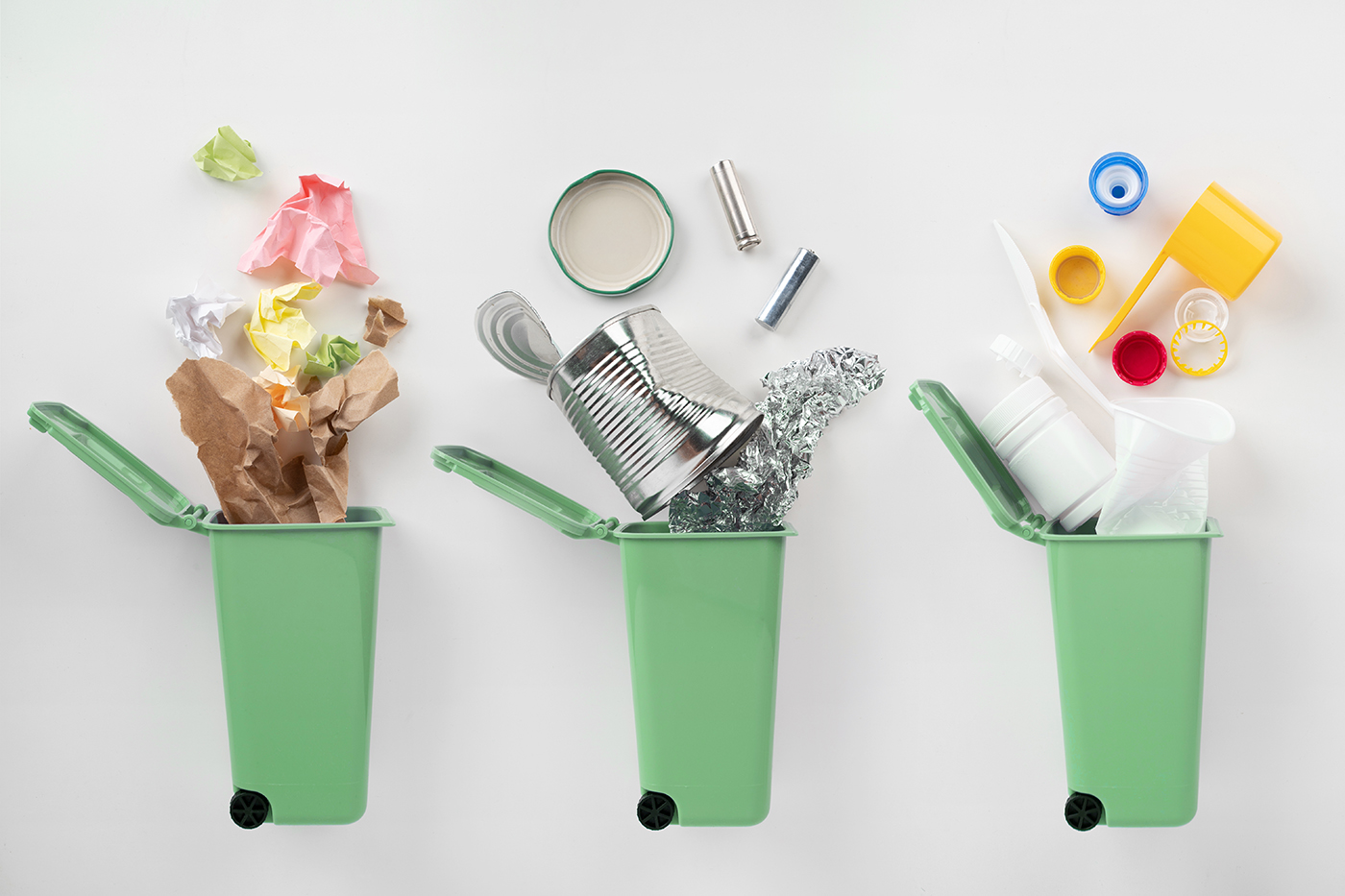Waste Management and Recycling Initiatives for 2023 That Every Household and Business Can Implement

This year, you and your organisation can make a difference through increasing waste management and environmental conservation through recycling initiatives. While this goal may appear to be vast, there are several things that anyone may do to help achieve it. Waste is generated by everyday activity, whether it be business or household activities such as cleaning and cooking, and while waste generation cannot be stopped, we can all help to reduce it and recycle waste by implementing some simple actions in our daily life… In the home, or the office!
Separate Waste at its Point of Origin
Separating waste at the place of origin is a key stage in the waste management process. When recyclable and non-recyclable waste are mixed, the recycling stream becomes contaminated. One out of every four items in mixed garbage is contaminated. Waste contamination occurs when discarded containers are not adequately cleaned or emptied of their former contents. Even recyclable items like paper and plastic can become contaminants if they are not clean. The safest option for mixed or co-mingled waste to be recycled appropriately is through an arrangement with a waste management business, such as Solo Resource Recovery.
Reduce the Use of Paper Products
Reducing your use and reliance on paper items is another approach to reduce the amount of waste you and your organisation generate. There are numerous alternatives to using paper. For example, instead of printing documents and sending them via post or courier, you can scan them and email them to their recipient. If you manage an office or retail space, you should consider implementing paperless transactions, as most tasks can be completed using digital documents rather than paper. You will also reduce the need to purchase printing equipment and associated materials, as well as the overall amount of paper that you consume, by doing so. Furthermore, for more recycling initiatives, you can utilise a dedicated recycling bin that is exclusively designed to hold paper waste, which will help ensure it is recycled correctly.
Reduce the Use of Plastic Products
Plastic products continue to populate waste streams, and one of the most common items is plastic bags which fall into the category of ‘Soft Plastics’ or ‘Single Use Plastics’. You can improve your waste management efforts by reducing your reliance upon them. Soft Plastics can take hundreds of years to degrade. They block water drains when dumped and are sometimes abandoned after only one usage. Instead of using plastic grocery bags, use eco-friendly tote bags. A tote bag is constructed of robust cloth, which makes it durable. It is also washable and compostable. In addition, certain restaurants and food chains are now using recycled paper plates, cups, and silverware instead of plastic ones, signalling a further shift in the availability of plastic products. Eco-friendly products promote green living and reclycling initiatives and help to conserve energy resources, and alternatives to plastic packaging currently exist that are versatile, and sometimes cheaper to use than their plastic alternatives.
Use Alternatives to Styrofoam
In general, styrofoam, which is derived from polystyrene, is not a great product to use because it harms both humans and the environment, and you should avoid using it whenever possible. One example is in the food sector, where an environmentally friendly plate, such as one made of recyclable paper, can be used instead of one made of styrofoam. Another approach to limit your use of styrofoam is to ship things via courier or mail in alternate packaging such as cardboard or paper.
Adopt A BYOC (Bring Your Own Container) Practice
Promoting recycling initiatives, you can incorporate a BYOC (bring your own container) strategy into your daily activities and responsibilities. For example, when you go grocery shopping, you can bring your own bag or container with you. You will be able to limit your use of plastic and paper carry bags in this manner. You can also substitute washable containers and mugs for single-use products. By implementing these practices, you are contributing to the overall reduction of trash, its handling, and landfill delivery.
Recycling Initiatives – Disposing of Your Organic Waste Correctly
Properly disposing of organic waste from your kitchen and garden will prevent it from ending up in a general landfill, where it can produce harmful fumes once it begins to decompose. Instead of throwing your organic waste in the garbage, compost it and then put it onto your garden. Additionally, your local government may operate a composting facility and accept organic waste deliveries, or Solo Resource Recovery’s waste disposal services may be able to collect your organic waste and convert it into compost or mulch for future use, depending on your location.
Whenever Possible, Use Bags And Packaging Made of Cotton, Canvas, or Calico
Cotton, canvas, and calico are formed of natural materials that are environmentally friendly and biodegradable, and their production has a low environmental impact due to recent improvements. Canvas tote bags are more durable and last longer than other types of bags, and jute is another renewable resource that may be utilised as a bag material, with the added benefit of the jute plant absorbing carbon dioxide from the air.
If you’re wanting tips on how to reduce your waste, or simply find a provider that can safely and efficiently remove your business or household waste, give Solo a call on 1300 GO SOLO and we would love to help you help the environment.
Related Posts

Published: October 1, 2024
Is Your Waste Management Performance Up to Scratch? Discover the Solo Difference
Read more
Published: August 15, 2024
Solo Invests in the Future: Company Expands Fleet with Hydrogen Vehicles
Read more
Published: December 15, 2023